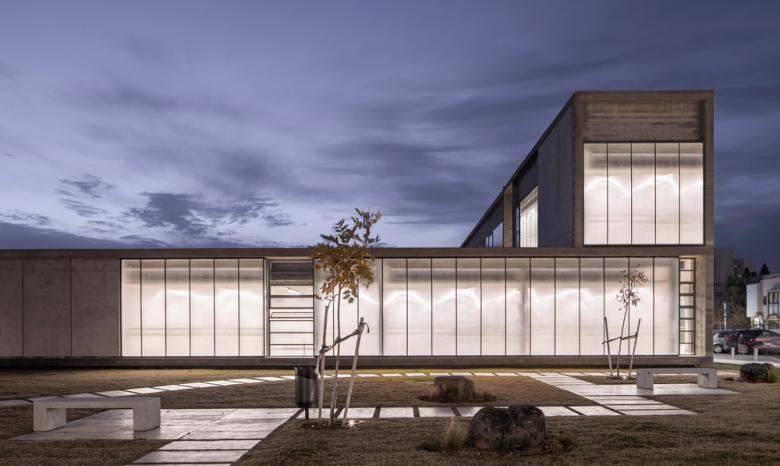TEO Center for Culture, Art and Content
A. Lerman Architects
16. septiembre 2020
Photo: Nimrod Levy (All images courtesy of v2com)
In a beachside residential area of Herzliya, TEO (the Theodor Herzl Center for culture, art, and content) comes into view as a distinct single-story building, eminently lower than the neighborhood’s enclosed private mansions. The freestanding TEO opens up a wide panorama toward the west—the horizon over the ocean—thus rupturing the visual and social narrative of walled luxury villas this area of Herzliya is known for. The insertion of a fully exposed public cultural center as an event in the surrounding urbanscape was key to the design strategy.
Location: Herzliya, Israel
Client: Herzliya development company Ltd.
Architect: A. Lerman Architects Ltd.
- Principal Architect: Asaf Lerman
- Project Architects: Danielle Nagila, Nimrod Schenkelbach, Itai Bachor
Photo: A.Lerman Architects Ltd.
TEO provides a unique functional facility to the city’s art-practicing and culture-seeking residents. The plan is designed within a 50 by 50 m2 perimeter around an offset central patio surrounded by the various programs: a music conservatory, a dance school, art and ceramics studios, a gallery, a senior recreation center, and a cafeteria. An upper partial floor houses a library complemented by a 300 m2 open deck.
East facade (Photo: Amit Geron)
The uniqueness of the design lies in the coherence of a precise geometric module that is strictly enforced throughout: concrete (on-site casts & precast units), textured glass, and metal flow seamlessly from exterior to interior surfaces. Cutting-edge sealing techniques were used to protect the building from the rain while maintaining its flat roof silhouette and tight proportions.
North facade (Photo: Amit Geron)
The patio (292 m2) makes available a space of quiet and welcoming scale. The floated, draining floor provides a pleasing horizontal surface from which a single mature oak tree rises. Direct sunlight from above dynamically projects its presence across the patio’s surfaces, creating ever-changing visual compositions of organic against geometrical form.

















